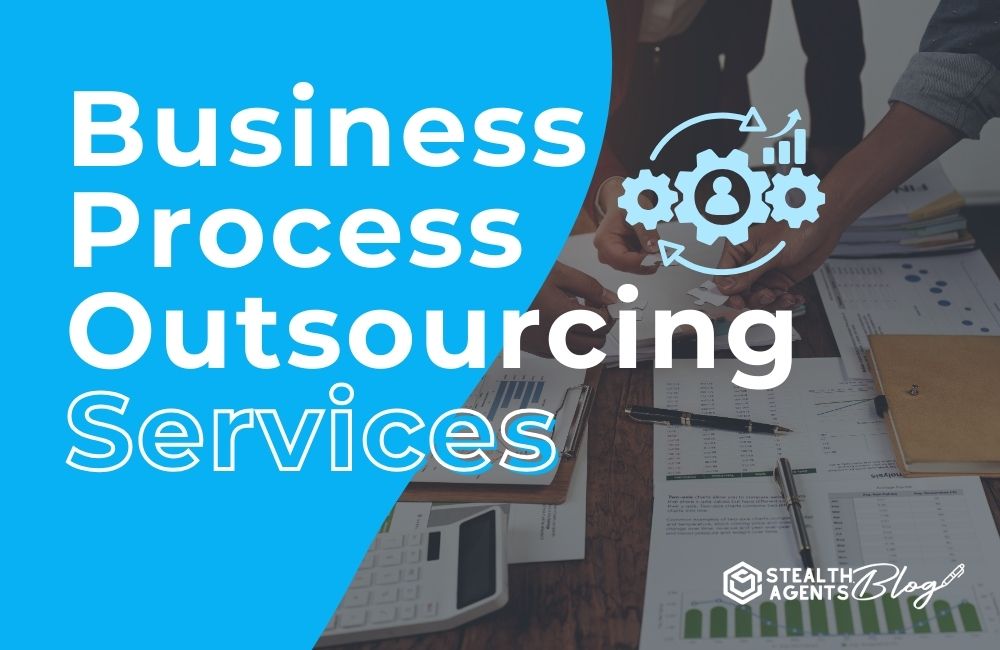Business Process Outsourcing (BPO) is a key strategy for companies looking to save time and money.
Companies focus more on what they do best by outsourcing tasks such as customer service, accounting, or HR to experts outside their own business.
This helps improve efficiency and allows businesses to tap into the expertise they might not have in-house.
This article will discuss business process outsourcing (BPO) services, the different types of BPO services, and where to hire them.
Let’s discuss the perfect outsourcing plan for your business and partner with our cheap virtual assistant to help your business.
Schedule your pricing consultation.
What are Business Process Outsourcing Services?
Business Process Outsourcing (BPO) allows companies to delegate non-core tasks like customer service and IT management to third-party providers, enabling them to focus on core activities.
Originating in the 1970s with basic tasks, BPO expanded in the 1980s and 1990s due to the Internet and global telecommunications, leading to the outsourcing of centers and back-office functions to countries with lower labor costs.
Today, BPOs have evolved to include various functions across different sectors, offering cost savings, efficiency, access to specialized skills, and scalability.
What are the Types of BPO Services?
1. Back Office Outsourcing
Back Office Outsourcing is a type of BPO (Business Process Outsourcing) service that focuses on handling internal business functions.
This includes important areas such as human resources, finance, and accounting.
Companies outsource these tasks to external experts to streamline operations, save costs, and focus on core business activities.
Businesses should ensure these critical functions are managed efficiently without maintaining a large in-house team for each department.
2. Front Office Outourcing
Front Office Outsourcing focuses on customer-related services, including everything in a contact center.
This means businesses outsource these tasks to specialists when they need help handling their customer care services.
It’s all about ensuring customers get the help and support they need, which helps the business maintain good customer relationships.
3. Offshore Outsourcing
Shore outsourcing involves hiring a third-party company in a different country to handle certain business activities for you. This type of BPO service is often chosen for its cost-effectiveness.
By outsourcing offshore virtual assistants to countries where labor is more affordable, businesses can significantly reduce operational costs without compromising quality.
Such can include customer support, IT functions, and back-office tasks.
It also allows companies to tap into a global talent pool, bringing in expertise and skills that may be scarce or too expensive in their home country.
4. Onshore Outsourcing
is when a company transfers some of its business processes or tasks to another company in the same country.
This type of outsourcing is particularly beneficial for businesses that prefer to work with partners who understand the market deeply.
It supports smoother communication and coordination due to fewer time zone differences and no language barriers.
Typically, onshore outsourcing is applied in customer service, IT support, and accounting services.
5. Nearshore Outsourcing
It occurs when a company chooses to delegate its business processes to a neighboring country in the same time zone.
This approach allows for smoother communication and cooperation due to the minimal time difference and often similar cultural backgrounds.
For businesses, this means being able to contact their outsourcing partners without worrying about scheduling meetings across widely different time zones.
It’s beneficial for those who require frequent collaboration or real-time communication.
6. Knowledge Process Ou
Knowledge Process Outsourcing, or KPO, focuses on requires specialized knowledge or higher-level thinking skills.
This can include market research, analysis, and others that need an in-depth understanding.
Businesses often turn to KPO when they need expert insights or analysis that goes beyond what traditional BPO offer.
7. BPO Process Outsourcing
Legal Process Outsourcing (LPO) is where law firms and corporate legal departments outsource legal work to external vendors.
These tasks range from document review and legal research to more complex activities like drafting contracts and patent services.
LPO providers are specialized firms often operating in jurisdictions, offering a cost-effective solution for managing legal tasks.
This helps reduce the workload on in-house legal teams and allows organizations to manage costs more efficiently.

What is the Best Business Process Outsourcing Firm?
Stealth Agents, a top virtual assistant provider, excels in delivering a broad range of business process outsourcing by hiring only the top 1% of talent.
Their high-quality, efficient support is praised in customer reviews for professionalism and responsiveness.
Offering diverse from administrative tasks to social media management, they help businesses focus on core operations affordably.
Known for their commitment to quality and client satisfaction, they’re a gothey’reice for companies seeking cost-effective.
What is the typical process for starting with a BPO provider?
1. Define Your Business
in by fully understanding which tasks or processes you want to oource.
Understanding finance, customer support, or IT assistance clearly defines the scope of work needed to find the right provider.
This step involves evaluating your priorities, such as cost-saving, efficiency, or expertise in handling a specific BPO externalization.
Planning ensures transitions and avoids unnecessary disruptions in daily operations.
Being specific helps attract the right BPO providers who align with your business goals.
2. Research and Shortlist viders
Explore options by finding a company specializing in business process outsourcing within ces.
Look for providers experienced in your specific BPO section, whether front-office officing solutions or back-office tasks.
Check their track record, reviews, and certifications to ensure they operate in a secure and reliable BPO environment.
Creating a shortlist of candidates will simplify the decision-making process.
Always prioritize companies that demonstrate flexibility and commitment to client needs.
3. Discuss and Finalize
If a provider is selected, arrange for e to o discuss and share details about your BPO management requirements.
This includes key performance indicators (KPIs), confidentiality agreements, and pricing based on the offered.
Providers in the BPO organization often offer customizable contracts to match your specific needs in virtual business process outsourcing.
Ensure clarity about timelines, communication channels, and escalation processes.
Having everything structured avoids confusion later.
4. Onboarding Process
Du ar Ardingurcing agent gets complete access to the information processes needed to take over their assigned roles.
Many companies specializing in sourcing BPO companies use a step-by-step approach for a seamless transition.
Testing workflows at this stage helps align operations effectively within the business process outsourcing management system.
The provider integrates with your existing work processes while ensuring business continuity.
This stage helps establish a foundation of trust and understanding.
5. Monitor Performance A and
Track regularly how well the BPO provider is meeting the objectives, whether in the front-office BPO service market or back-office tasks.
Utilize reports and analytics to measure productivity and quality of work.
Sharing feedback promptly allows the organization to address issues before they grow.
Maintaining consistent communication ensures smooth collaboration and adjustments based on evolving needs.
Effective monitoring helps strengthen the partnership and ensures long-term success from outsourced services.
What are Examples of Business Process Outsourcing?
1. Marketing
Marketing er various marketing tasks or operations to external specialists or agency
He can encompass various digital marketing campaigns, from social media management to email marketing.
Companies often outsource these functions to access specialized skills and technologies and improve focus on core business areas.
2. Payroll
Handling physical functions for any business, ensuring employees are paid accurately time.
When companies outsource their payroll, they assign this responsibility to experts who specialize in efficiently managing compensation, taxes, and benefits.
This saves time and reduces the number of mistakes that could lead to penalties or unhappy employees.
3. Human resources (HR)
A company chooses to have another business handle recruiting, p training, and employee benefits management tasks.
Instead of having an in-house team manage these functions, companies outsource them to specialists focusing on HR.
This approach saves time and resources and benefits from the expertise of professionals fully immersed in the HR field.
4. Customer service
The dTheynanswere calls, responses, and managed chat services.
By doing so, es can provide 24/7 support, even if the main office is closed, they are using a
Outsourced customer service centers can handle a large volume of requests efficiently.
5. Supply chain management includes materials procurement, inventory management, and delivery services.
By sourcing these segments, businesses can focus more on their core activities while leveraging the expertise and efficiencies of outside firms.
This shift streamlines operations and can lead to cost savings and more flexible, responsive supply chains.
6. Finance
Handling finances involves bookkeeping, managing payrolls, processing invoices, and financial planning lysis.
These tasks let a company tap into specialized skills and technology they might not have in-house.
This approach saves money and allows the business to perform its core activities, knowing that the financial operations are in skilled hands.
7. Accounting
Businesses use their accounting tasks to experts outside their company.
This includes tracking earnings and expenditures, preparing cudo, and ensuring the accuracy of all financial reports.
By doing this, businesses can focus more on growing their operations and less on crunching numbers.
What are the Benefits of Business Process Outsourcing Services?
Business Process Outsourcing (BPO) can help companies save money and focus on their maiprimaryals better.
A company can reduce its costs by outsourcing tasks such as customer service, accounting, or IT support.
This method also allows businesses to tap into the expertise and advanced technology of their BPO partners, ensuring higher quality in specialized tasks.
Furthermore, outsourcing makes a company more flexible, allowing it to adapt more quickly to market changes or demand spikes.

What are the Disadvantages of BPO Services?
Sometimes, saving money is the main reason companies choose BPO. However, costs or unexpected expenses can make it riskier than planned.
When you hand over parts of your business to another company, you might not have a say in how things are done.
This can feel like you’re in the arts of your business.
Ensuring the BPO service’s work meets your standards can best restrict the structure that affects your business.
Lastly, keeping with the latest tech can be hard, but it is helpful as you
How do you Choose Business Process Outsourcing Services?
Firstly, you should identify the specific tasks to outsource. It would be anything, anything accounting.
Next, look for a BPO service provider with a strong track record in these areas. Check the differences and what others y about them.
Also, consider the p r’s provider’s technology sure. They use p-to-date teacup-to-date technology and s to protect your data.
Finally, co-action is key, so you should choose technology, which is easy to work with.
Following these steps, you can find a BPO that fits your business needs and helps you achieve your goals.

What is a BPO service provider?
A BPO service provider is a company that helps other businesses carry out tasks they need but might not have the time, expertise, or resources to do so themselves.
This can include answering customer calls, managing emails, and data entry to more complex tasks like handling payroll or human resources tasks.
BPO means business process outsourcing, essentially outsourcing business activities that don’t necessarily need to be done in-house.














